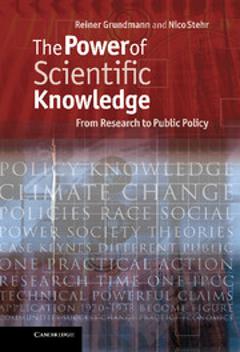The Power of Scientific Knowledge: From Research to Public Policy
It is often said that knowledge is power, but more often than not relevant knowledge is not used when political decisions are made. This book examines how political decisions relate to scientific knowledge and what factors determine the success of scientific research in influencing policy. The authors take a comparative and historical perspective and refer to well-known theoretical frameworks, but the focus of the book is on three case studies: the discourse of racism, Keynesianism and climate change. These cases cover a number of countries and different time periods. In all three the authors see a close link between 'knowledge producers' and political decision makers, but show that the effectiveness of the policies varies dramatically. This book will be of interest to scientists, decision makers and scholars alike.
{{comment.content}}








 京公网安备 11010802027623号
京公网安备 11010802027623号